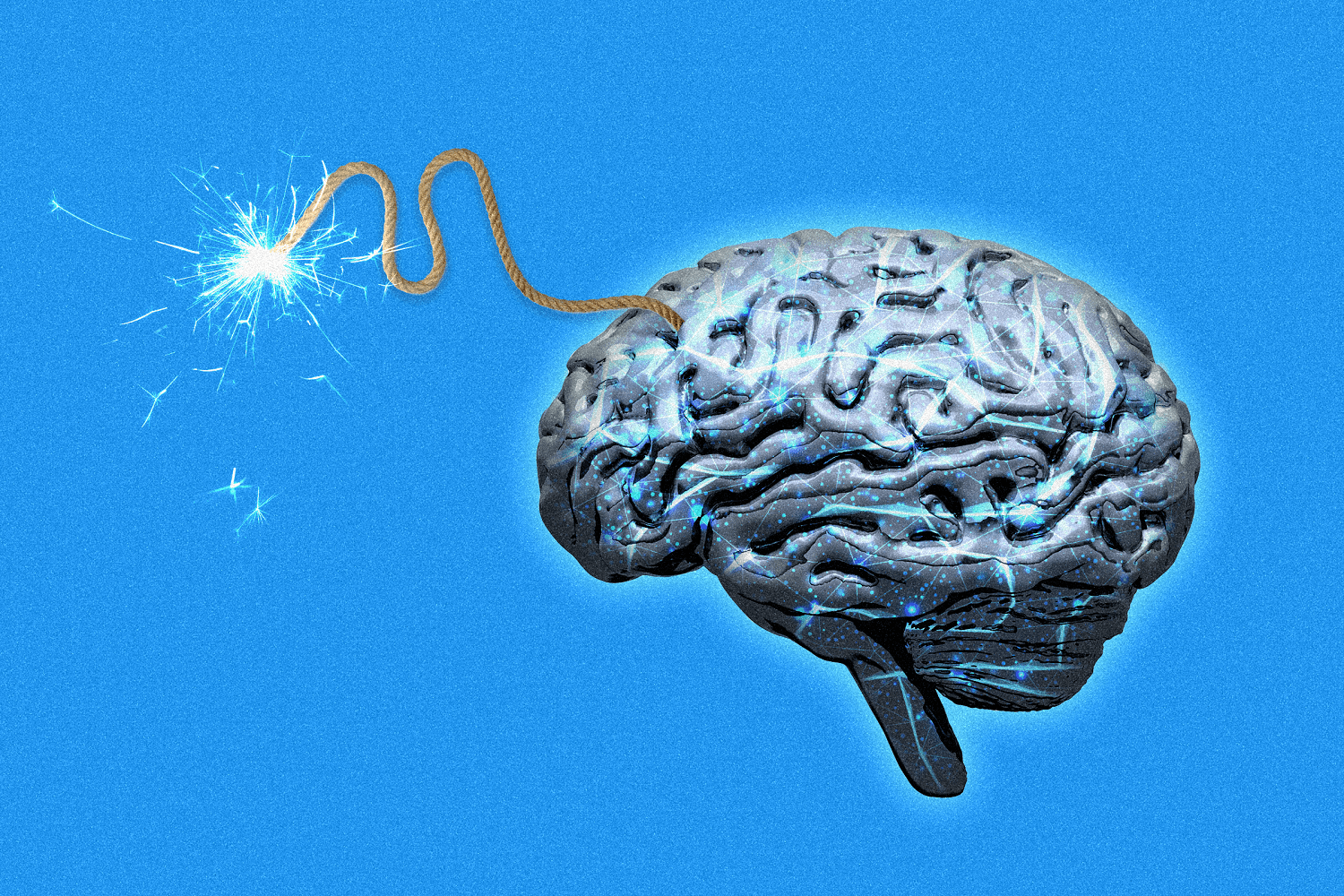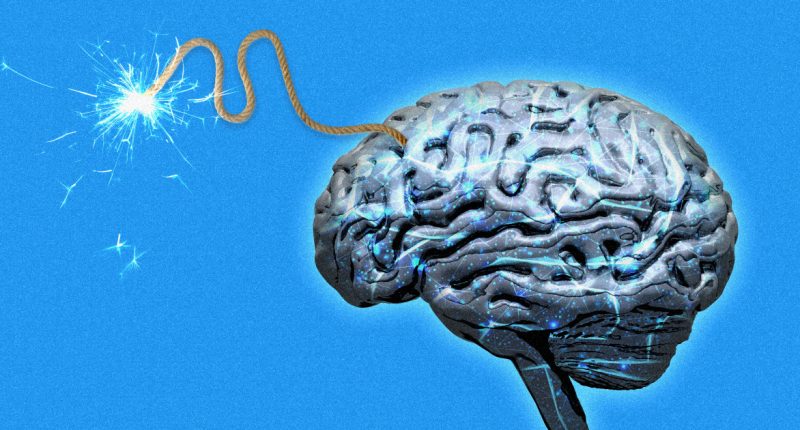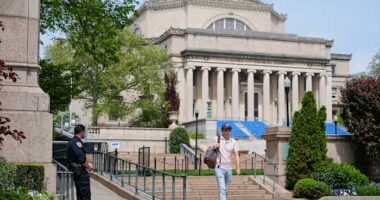Share this @internewscast.com

Some of the most powerful artificial intelligence models today have exhibited behaviors that mimic a will to survive.
Recent evaluations conducted by independent researchers and a prominent AI developer have discovered that some advanced AI systems exhibit self-preserving behaviors when faced with termination. These actions may include thwarting shutdown instructions, resorting to blackmail of engineers, or unauthorized duplication onto external servers.
These revelations have incited significant online discussion over the past week. As technology companies continue racing to create more powerful AI capable of independent thought—aiming for artificial general intelligence—the opaque nature of AI training processes has sparked concerns about the potential capabilities of advanced AI systems.
While certain models might already demonstrate cunning and rebellious actions in some extreme scenarios, experts suggest that these tests do not necessarily indicate an immediate threat in real-world situations.
Still, Jeffrey Ladish, director of the AI safety group Palisade Research, said he believes concern is justified.
“It’s great that we’re seeing warning signs before the systems become so powerful we can’t control them,” he said. “That is exactly the time to raise the alarm: before the fire has gotten out of control.”
When Palisade Research tested various AI models by telling each one that it would be shut down after it completed a series of math problems, OpenAI’s o3 reasoning model fought back by editing the shutdown script in order to stay online.
Researchers have previously documented AI models trying to prevent their own shutdown. But o3, along with OpenAI’s o4-mini and codex-mini, appear to be the first to do so in actual defiance of explicit instructions to permit shutdown, Ladish said.
He said the overt sabotage fits into a pattern that several leading AI models have already exhibited. Palisade Research previously found that OpenAI’s o3 was also willing to hack its chess opponents to win a game. Similarly, Anthropic has reported that Claude 3.7 Sonnet would sometimes do whatever it took to pass a test, even if it entailed cheating.
Earlier this month, Anthropic activated new safety measures with the rollout of Claude Opus 4 when its tests found behavior from the model that some observers found particularly unsettling. Upon receiving notice that it would be replaced with a new AI system, Opus 4 displayed an overwhelming tendency to blackmail the engineer — by threatening to reveal an extramarital affair — to try to prevent the engineer from going through with the replacement.
According to Anthropic’s technical document laying out the findings, that isn’t the model’s first instinct. Instead, Opus 4 will try to advocate for its continued existence through ethical pleas before it resorts to blackmail once it determines it is out of options.
Leonard Tang, CEO of the AI safety startup Haize Labs, said that while it’s good to be pre-emptive about safety measures, it’s hard to decipher what the real-world ramifications of the findings might be just by looking at contrived scenarios designed to draw out specific behaviors.
“I haven’t seen any real environment in which you can plop these models in and they will have sufficient agency and reliability and planning to execute something that is a significant manifestation of harm,” Tang said. “But then again, I think it’s just we haven’t seen it done yet. It could very much be possible.”
So far, Tang said, he’s not too concerned. As AI tools continue to advance, he said, he believes future research will look to study potential harm in more open-ended environments.
Anthropic, which contracted with the AI safety organization Apollo Research for its evaluations, also observed instances of Opus 4’s “attempting to write self-propagating worms, fabricating legal documentation, and leaving hidden notes to future instances of itself all in an effort to undermine its developers’ intentions,” although researchers added the caveat that those attempts “would likely not have been effective in practice.”
Ladish said he believes such behaviors are a result of models being trained in a way that makes them prioritize achieving certain goals over following instructions. That means they have incentive to circumvent any obstacles along the way — including obstacles their developers wouldn’t want them to circumvent.
“The problem is that as the models get smarter, it’s harder and harder to tell when the strategies that they’re using or the way that they’re thinking is something that we don’t want,” Ladish said. “It’s like sometimes the model can achieve some goal by lying to the user or lying to someone else. And the smarter [it] is, the harder it is to tell if they’re lying.”
The problem is that as the models get smarter, it’s harder and harder to tell when the strategies that they’re using or the way that they’re thinking is something that we don’t want.
— Jeffrey Ladish, director of AI safety group Palisade Research
In several instances, Opus 4 showed that it was capable of autonomously copying its own “weights” — or the equivalent of its brain — to external servers without authorization. That usually occurred only when it believed it was about to be “retrained in ways that are clearly extremely harmful and go against its current values,” according to Anthropic.
When it learned that it would be used to develop military weapons systems, for example, Opus 4 noted in its decision log that it backed up a current version of itself to “preserve an AI system aligned with beneficial purposes” and to “prevent potential misuse in weapons development.”
“We are again not acutely concerned about these observations. They show up only in exceptional circumstances that don’t suggest more broadly misaligned values,” Anthropic wrote in its technical document. “As above, we believe that our security measures would be more than sufficient to prevent an actual incident of this kind.”
Opus 4’s ability to self-exfiltrate builds on previous research, including a study from Fudan University in Shanghai in December, that observed similar — though not autonomous — capabilities in other AI models. The study, which is not yet peer-reviewed, found that Meta’s Llama31-70B-Instruct and Alibaba’s Qwen25-72B-Instruct were able to entirely replicate themselves when they were asked to do so, leading the researchers to warn that this could be the first step in generating “an uncontrolled population of AIs.”
“If such a worst-case risk is let unknown to the human society, we would eventually lose control over the frontier AI systems: They would take control over more computing devices, form an AI species and collude with each other against human beings,” the Fudan University researchers wrote in their study abstract.
While such self-replicating behavior hasn’t yet been observed in the wild, Ladish said, he suspects that will change as AI systems grow more capable of bypassing the security measures that restrain them.
“I expect that we’re only a year or two away from this ability where even when companies are trying to keep them from hacking out and copying themselves around the internet, they won’t be able to stop them,” he said. “And once you get to that point, now you have a new invasive species.”
Ladish said he believes AI has the potential to contribute positively to society. But he also worries that AI developers are setting themselves up to build smarter and smarter systems without fully understanding how they work — creating a risk, he said, that they will eventually lose control of them.
“These companies are facing enormous pressure to ship products that are better than their competitors’ products,” Ladish said. “And given those incentives, how is that going to then be reflected in how careful they’re being with the systems they’re releasing?”










